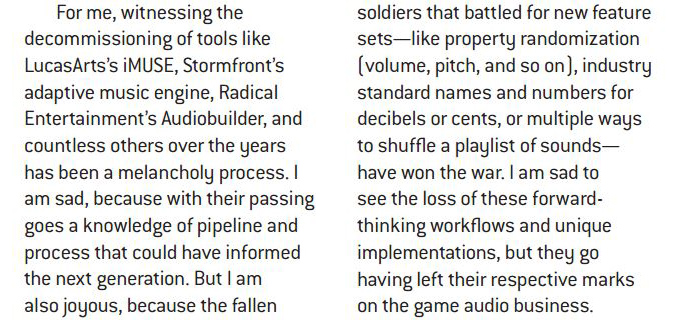So that was the big story yesterday: Inside the disintegration of a game jam reality show. It’s always great to see integrity.
But to me there’s still a notion that game jams are something you want to show to the world. Zoe Quinn gives us her wishes:
Capture the inspiration, the hard work, the 3am delirium and the dumb jokes that come with it. Show people how we all band together and support each other through the deadline. That’s what I want to show the world about game jams.
I think we have to face the fact that this is not sexy or interesting to most people. It’s awesome when you’re doing it, not watching it. Game development like most building processes is not something you want to show people THAT much: it’s messy, it smells like sweat and pizza more often than not, it’s hard, it’s tedious, it’s slow, it’s nerve wrecking. Did I mention that it was hard? You are a pile of useless shit after a game jam. Really useless.
I mean even with elegant and “artsy” medium like music or movies we don’t care so much about behind the scenes. Culturally, people know that it’s messy and thus are not very interested in the making of, which is why behind the scenes stuff are usually hidden promotional tools. People want to play guitar not because they know Jimi played that part 23 times before having the good one, but because listening to that song make people want to learn guitar.
Documenting how gamedev works is great but that will not trigger a wave of thirsty young folks to join in. Nerds are already toying with code and games and others will be like, ew.
What I would love to see is an app store like distribution of those jam games. If I could install/uninstall in one click and run all the games, share them easily regardless of your platform of course, that would be amazing. I’m sure there are some unheard of gems from the hundreds of games made during jams on top of which people could expand.
I want edgy, unethical, indecent –indie-scent, yes I’m sorry- games in game jams, that’s what I wish we were focusing on more than the community aspect. I want individuals more than tribes. I want games more than jams.
Because ultimately, people and their games will make other people make games.



